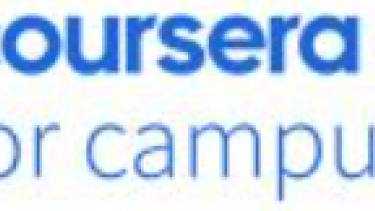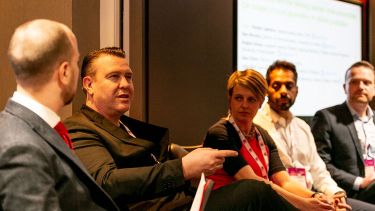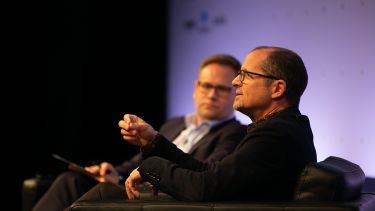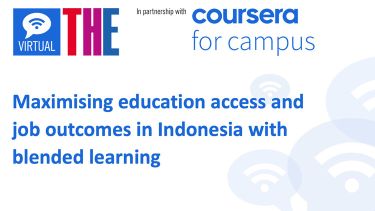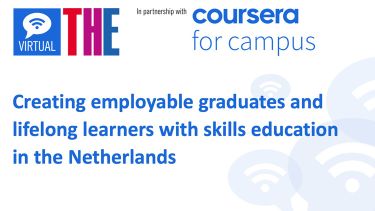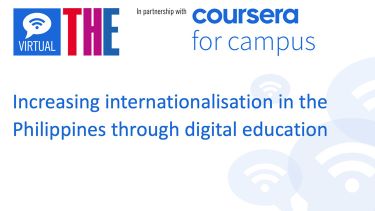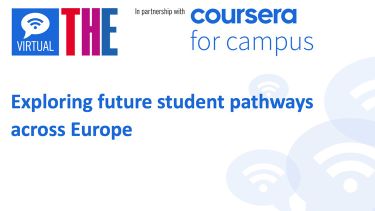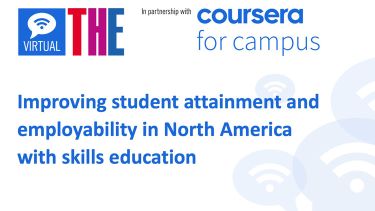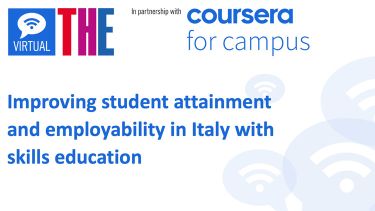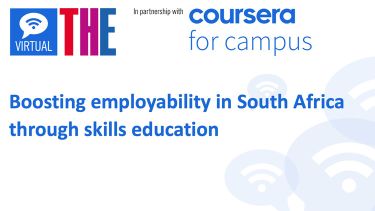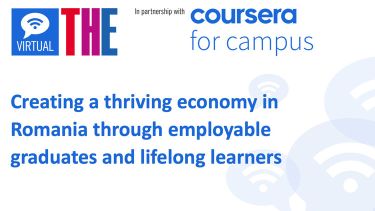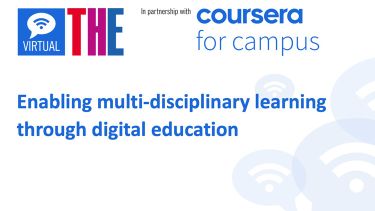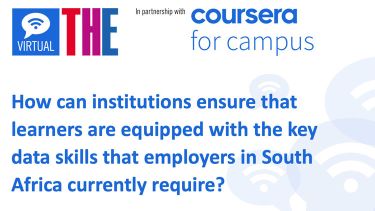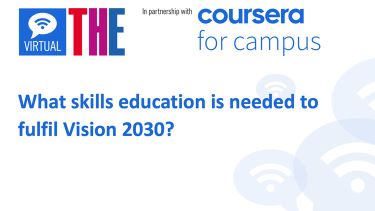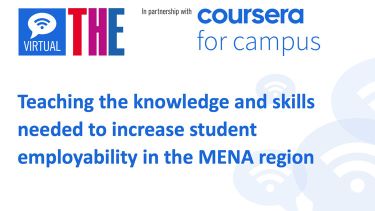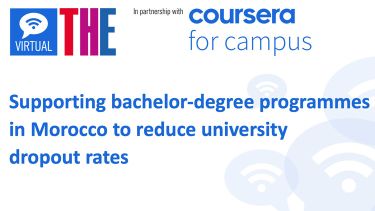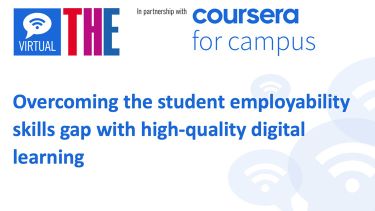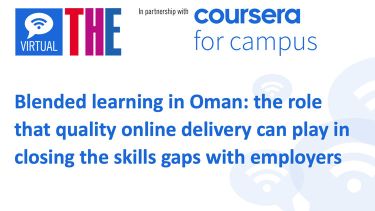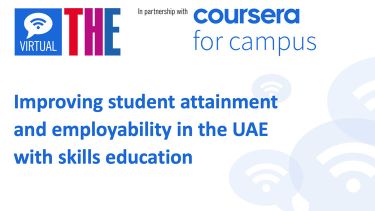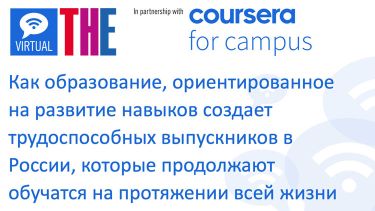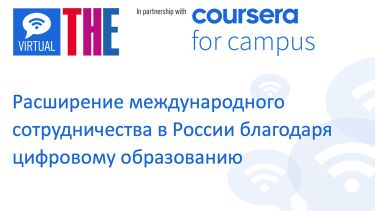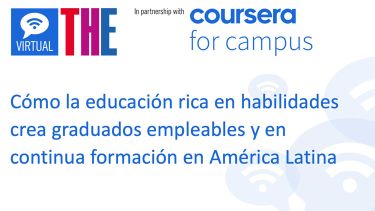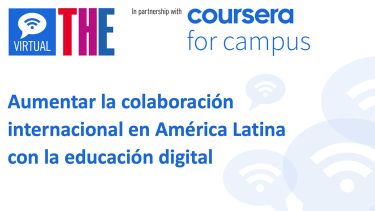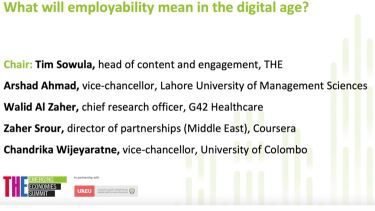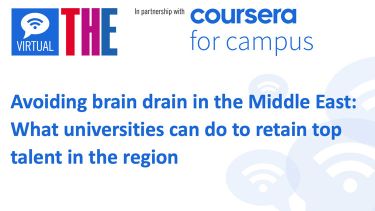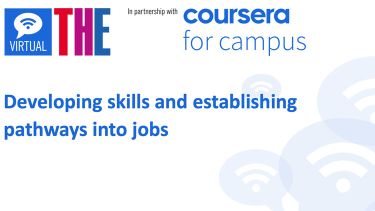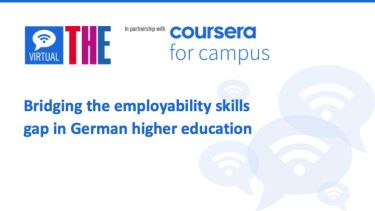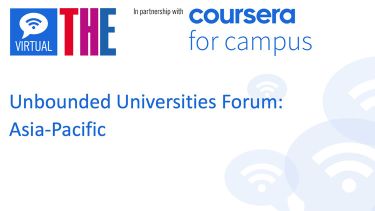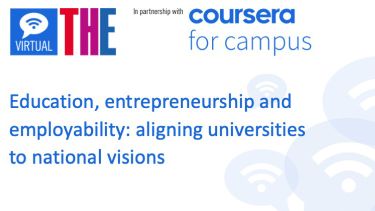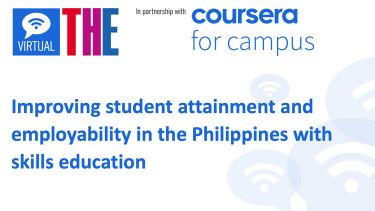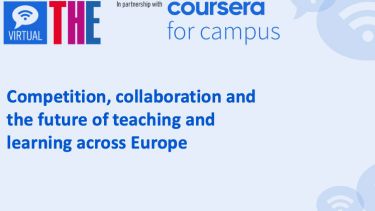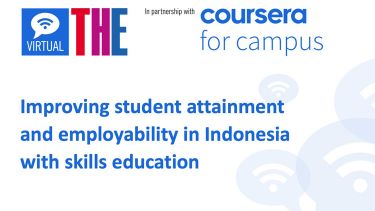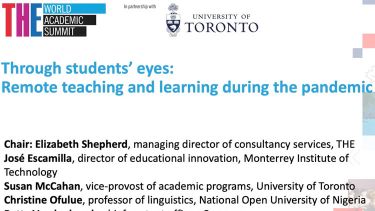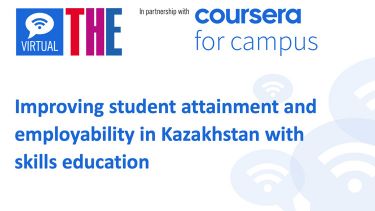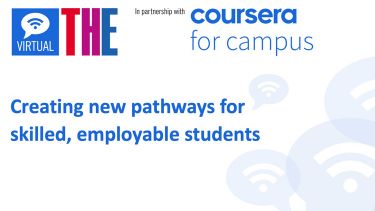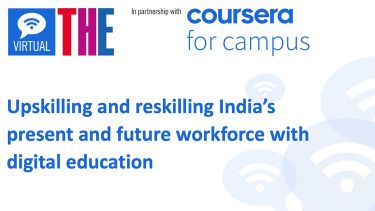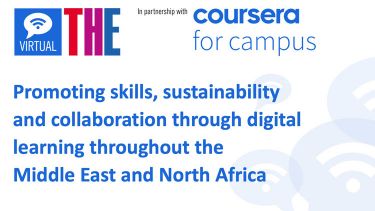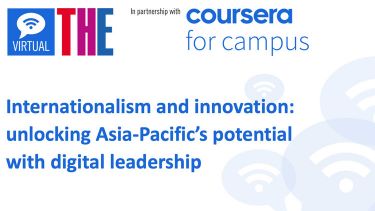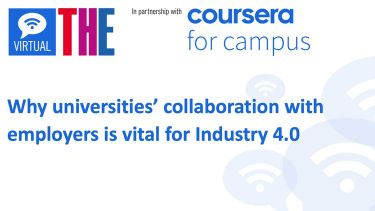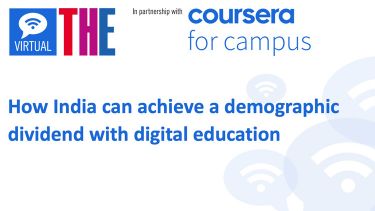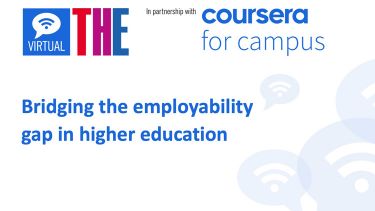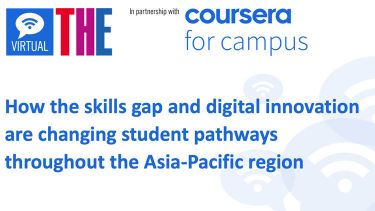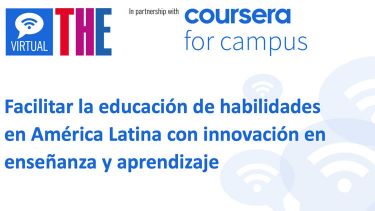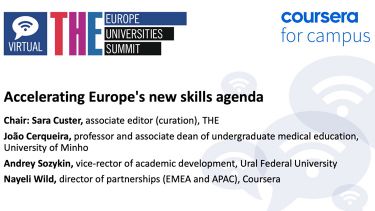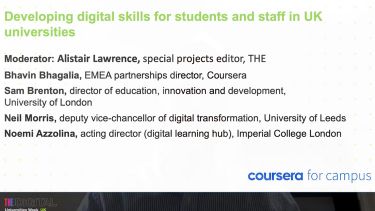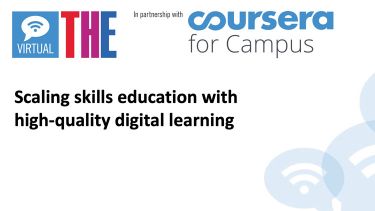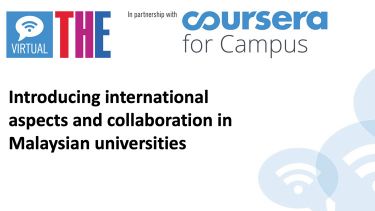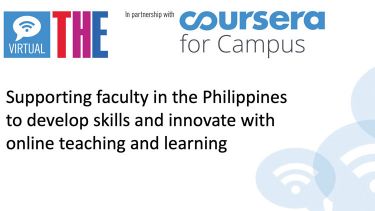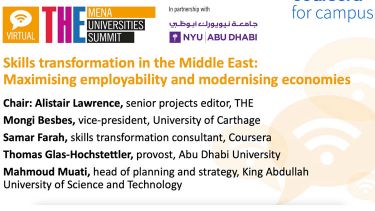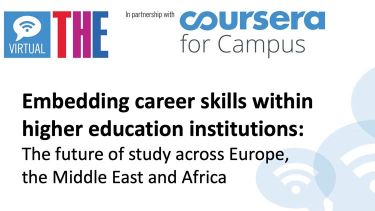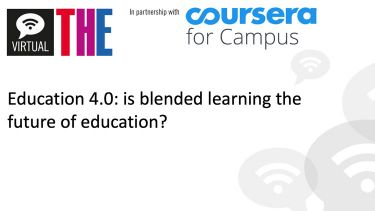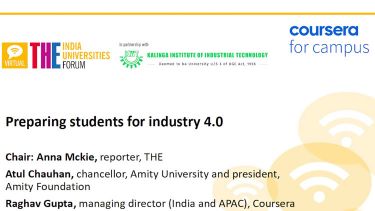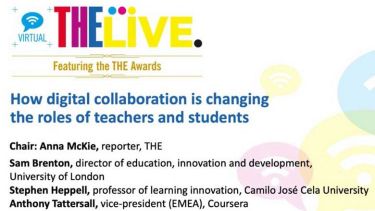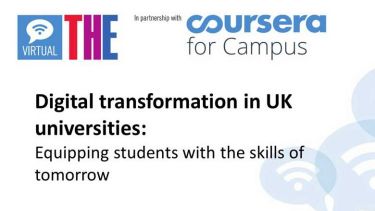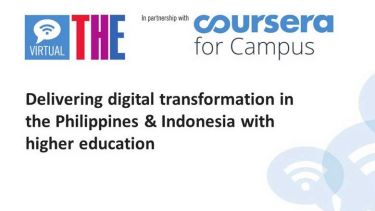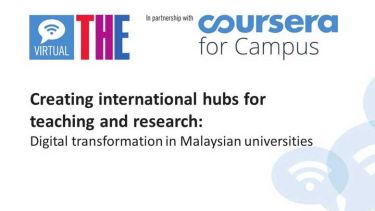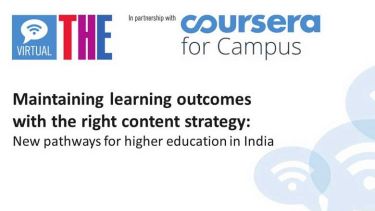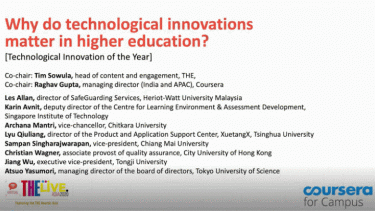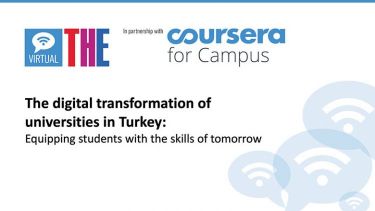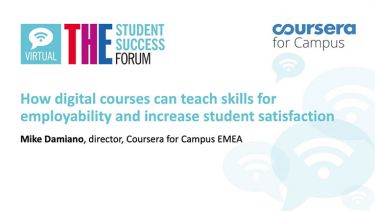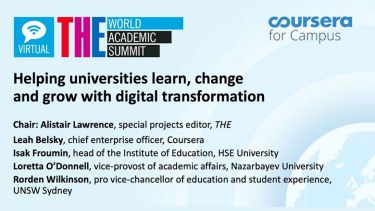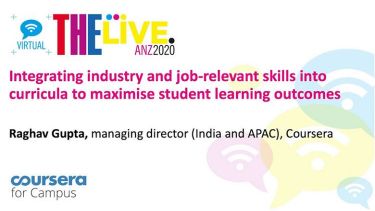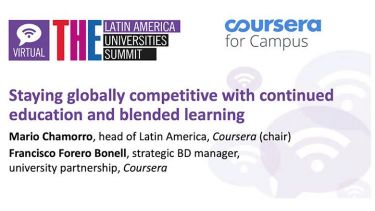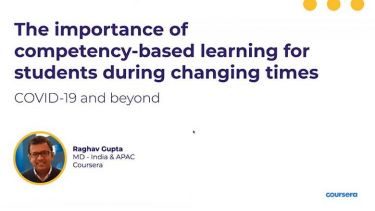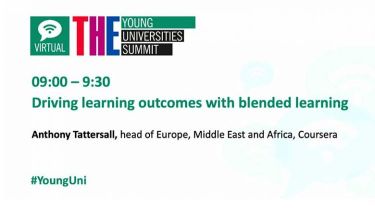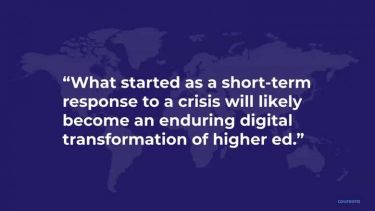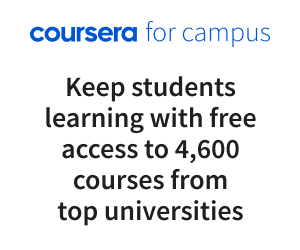To prepare students for the fast-evolving workplace of tomorrow, universities in Asia must augment their teaching programmes today
Creating sustainable pathways for graduate careers is a key mission of the higher education system, but it has been complicated by the influence of new technologies in the workplace.
At a Times Higher Education Asia Universities Summit session, hosted in partnership with the online learning platform Coursera, the company’s managing director for India and APAC, Raghav Gupta, said that baking skills-based education into the curriculum can future-proof student employability.
“Organisations such as the [World Economic Forum] have been saying that the future of industry is going to be professionals who have a combination of digital, data and human skills,” Gupta said. “I think that is a good starting point for academia to think about for getting students ready for the future of work.”
With more than 80 million users worldwide, Coursera’s platforms offer significant insights into the skills demanded of working professionals, and how these demands might evolve dramatically even over the space of 12 months.
“We found that in 2019, a lot of the learning was actually happening around technology skills, and it was happening around data skills, and it was happening around business skills,” Gupta said. “What happened in 2020 was human skills came into the limelight as well. How do we communicate with each other? How do you manage mental health? How do you manage stress? A lot of those skills came up.”
Some of these skills can be learned by osmosis in more practical modes of teaching. Hands-on group projects, industry placements and projects in which students interact with the outside world can all help students acquire skills as they learn.
Misaki Takabayashi, vice-dean of the graduate school at Okinawa Institute of Science and Technology (OIST), said at OIST professional career development has always been a credit-bearing graduation requirement. “We throw students into a service-learning group project in their first year,” Dr Takabayashi said. “What the students say they learn out of that is project management skills, leadership, problem solving, critical analysis, as well as communication.”
Universities could be even more prescriptive when designing their curricula by tailoring classes to industry-specific roles in industries such as wearable tech, nanosensors, the internet of things and mechatronics.
However the curriculum is augmented, the panel suggested that fortune favoured the imaginative, and thinking outside the campus – as many students do by enrolling with Coursera and taking industry-authored modules – could help support graduates embarking on their career paths.
Watch the session on demand above or on the THE Connect YouTube channel.
Find out more about Coursera for Campus.


